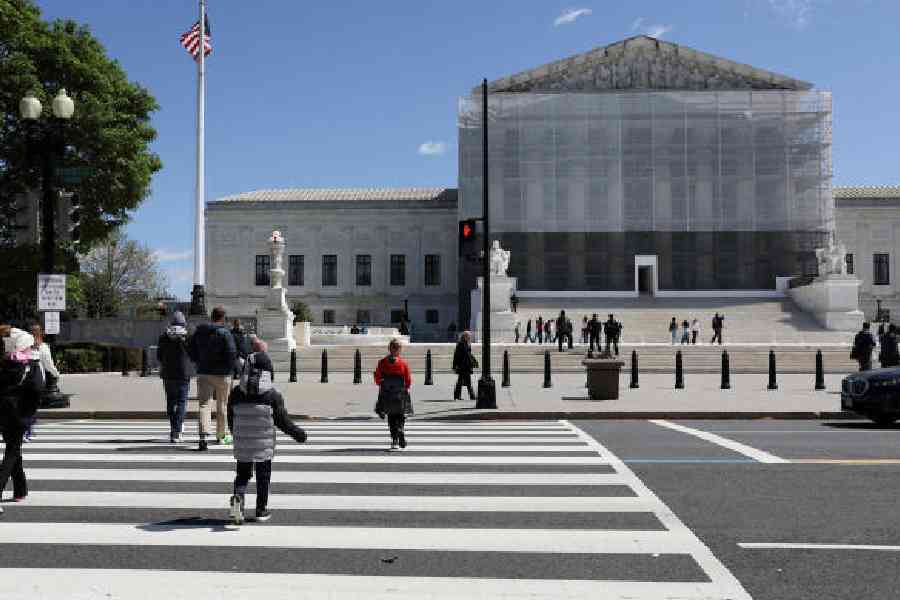The Supreme Court temporarily blocked the Trump administration early on Saturday from deporting another group of Venezuelan migrants accused of being gang members under the expansive powers of a rarely invoked wartime law.
“The government is directed not to remove any member of the putative class of detainees from the US until further order of this court,” the court said in a brief, unsigned order that gave no reasoning, as is typical in emergency cases.
Justices Clarence Thomas and Samuel A. Alito Jr. dissented. The White House did not issue any immediate response.
More than 50 Venezuelans were scheduled to be flown out of the country — presumably to El Salvador — from an immigration detention centre in Anson, Texas, according to two people with knowledge of the situation. The ACLU in recent days had already secured court orders barring similar deportations under the law, the Alien Enemies Act, in other places including New York, Denver and Brownsville, Texas.
The situation in Anson was urgent enough that ACLU lawyers mounted challenges in three different courts within five hours on Friday.
The lawyers started with an emergency filing in Federal District Court in Abilene, Texas, in which they claimed that officers at the Bluebonnet Detention Center in Anson had started distributing notices to Venezuelan immigrants informing them that they could face deportation as soon as Friday night.
They asked judge James Wesley Hendrix, who is overseeing the case, to issue an immediate order protecting all migrants in the Northern District of Texas who might face deportation under the Alien Enemies Act. When judge Hendrix did not grant their request quickly — and later rejected it entirely — the lawyers filed a similar request to the US Court of Appeals for the Fifth Circuit in New Orleans.
The lawyers then filed an emergency petition to the Supreme Court, asking the justices to step in and issue an immediate pause on any deportations because many of the Venezuelan men had “already been loaded on to buses, presumably headed to the airport”.
Immigration lawyers have been playing a high-stakes game of cat and mouse with the federal government since President Trump issued a proclamation last month invoking the Alien Enemies Act as a way to deport immigrants he claims are members of Tren de Aragua, a violent Venezuelan street gang. The law, which was passed in 1798, has been used only three times before in US history, during periods of declared war.
The efforts by groups like the ACLU to stop deportations under the act were complicated by a Supreme Court ruling that found that anyone subject to the statute needed to be given the opportunity to challenge their removal, but only in the places where they were being detained.
New York Times News Service










